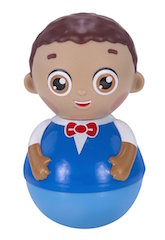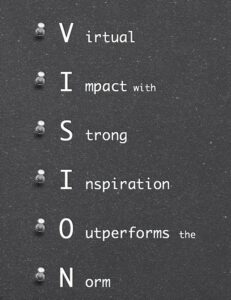The mindset that drives your ability to recover from setbacks
The first few weeks of 2018 have already gone by. Many people will have set resolutions for new behaviour or goals in private or business life at the beginning of January. Sometimes they are easy to follow through, some may challenge our discipline, and with some we may even hit obstacles on the way.
Setbacks are very normal when you want to achieve challenging goals or resolutions. So what do you do when you experience one? Setbacks are not just happening when you set yourself challenging goals. They can hit you any time in daily life situations. During one of my recent coaching sessions I had a conversation about a setback in form of a demotion in the context of a re-organisation. And that had triggered massive frustration and demotivation in my client.
There are many ways how people react when being knocked over by such setbacks. Some take it, get up and move on. These are people with an admirably high level of resilience! And if you are one of them, you can stop reading right here.
If you are not one of these people, you might want to read on!
In the above case, and in a number of other people I have encountered in comparable situations, the first reaction was frustration and anger, followed (immediately) by blaming others or external reasons, that might -or might not- have been the cause. This is a very natural initial reaction relative to the severity of the event.
But then behaviours of people diverge, depending on how well developed their resilience is. Especially the “blaming others” can keep us stuck in a pattern of helplessness which makes it difficult to recover from or get out of. The best way to be prepared and not fall in this trap of anger, blame and grief is to develop our ability to respond with resilience.
 For me, the best metaphor for resilience are weebles. A very fitting ad slogan (I believe) by the toy manufacturer at some point was ”Weebles wobble but they don’t fall down”. They just get back upright quickly when you knock them over. And the heavier the base of these figurines the faster they do get back up.
For me, the best metaphor for resilience are weebles. A very fitting ad slogan (I believe) by the toy manufacturer at some point was ”Weebles wobble but they don’t fall down”. They just get back upright quickly when you knock them over. And the heavier the base of these figurines the faster they do get back up.
So let’s look at this “base” that can contribute greatly to our resilience.
In my experience, there is a particular mindset that adds the weight to our base/resilience and prevents us from falling into the trap of anger, blame and grief.
What mindset is that?
I am talking about the mindset of a PLAYER
Mindsets are deeply anchored in our personality. They have been formed over many years of our upbringing through conditioning in the family, school or other factors of our environment. Depending on the influence of all these factors some mindsets are stronger developed than others.
The PLAYER mindset -as oppose to the mindset of a VICTIM- enables us to look at situations with a proactive perspective. It allows us to focus on our ability to respond but also include our own contribution to the situation. It also allows us to consider factors which are within our control and which we can influence. As a result we are able to realise that whatever is happening to us there is always something we can do to alleviate a situation. We always have a choice of how we want to respond to what we are confronted with.
In order to dive deeper in what the player mindset is all about, I highly recommend watching this video by Fred Kofman which explains it excellently.
Embracing this mindset gives you the power to manage any situation in the best possible way and potentially even improve it. You will always recognise that you have a choice of how to respond in the face of a setback.
Tips to strengthen your PLAYER mindset
Here are a few tips now how you can strengthen your player mindset to prepare yourself for these moments when you experience a setback so that you can recover much quicker from it than before.
First and foremost, you have to make a clear distinction between things that are outside of your control and those that are within your area of influence. Then you need to let go of the things you cannot control and make your inner peace with them.
Now focus on the aspects you can influence and ask yourselves the following questions:
- What was my contribution to this situation?
- What could I have done better to change the course of events?
- What can I learn from this?
- What can I do now to improve the situation that is within my influence?
When you ask yourself the last question be really open to any option. Only then evaluate them all and be clear whether you want to live with the consequences of each of the options you have listed. Then make a conscious choice on which way to go.
Start practicing this process in your day-to-day life so that it becomes second nature. My own experience with this approach taught me that it indeed strengthened my resilience and I am much better now in dealing with setbacks.
As always, your comments are most welcome and if you want to have a deeper conversation about this please contact me direct.



